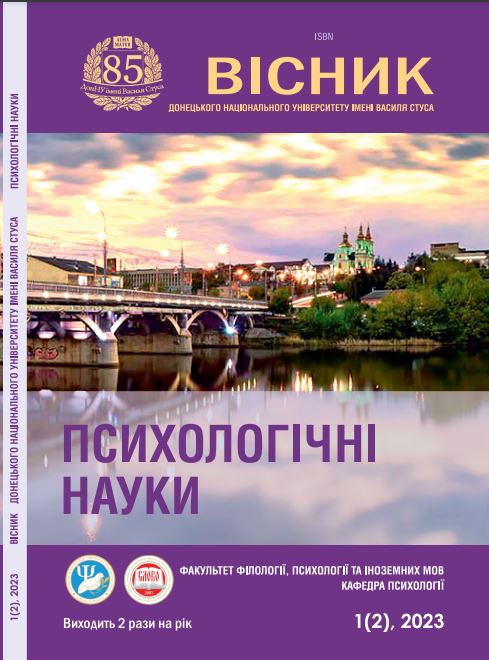Active methods of socio-psychological adaptation and professional training of managers in the tourism field
DOI:
https://doi.org/10.31558/2786-8745.2023.1(2).8Keywords:
psychology of service activity; professional competence;social-psychological training; training of a competitive specialistAbstract
The article presents the main psychological methods and means of psychologicalpedagogical support for the process of adaptation and personal development in the training of managers in the field of tourism, the psychological characteristics of the profession are given, and the competencies of managers in the field of tourism are described. The relevance of this topic is due to the need to develop the competitive advantages of specialists, the need for effective professional activity in the field of tourism. The article highlights the technological and professional and personal requirements of tourism enterprises for the professional activity of specialists,and defines its principles. Active methods (training, discussions,role-playing games) aimed at increasing the level of social and psychological adaptation, changing inadequate motives and acquiring new forms of behavior are highlighted. Adaptation is perceived as a process of active personal self-development.
The main structural elements of social-psychological training, namely group cohesion ta sks, created for the formation of an emotional mood to work in a group among training participants, are considered; group discussions within the subject of the lesson; psychogymnastic exercises of a meaning ful plan, aimed at establishing effective contact, taking into account the age and personal characteristics of the training participants; exercises on perception and understanding of the partner’s emotional state, development of empathic tendencies and sensitivity, exercises on the ability to competently receive and transmit information, on the ability to listen and hear effectively; psychogymnastic exercises that contribute to increasing work capacity during group work; psychogymnastic exercises, the main purpose of which is the formation of a reverse multimodal personal connection; enactment and analysis of situations aimed at demonstrating acquired skills in the context of behavior. The principles of social-psychological training are considered, which include: the principle of creative activity; principle of research position; the principle of partnership communication; the principle of emphasizing the language of feelings; organization of the communication process according to the «here and now» principle; the principle of trust communication; the principle of confidentiality; the principle of personification of statements.
References
Лукашевич О.М. Психологія туризму. Туризмологія: концептуальні засади теорії туризму. Монографія. К.: ВЦ «Академія», 2013.
Fu X., Kirillova K., Lehto X.Y. Travel and Life: a Developmental Perspective on Tourism Consumption over the Life Course. Tourism Management. 2022. Vol.89.
Kodom-Wiredu J.K., Coetzer A., Redmond J., Sharafizad J. Informal Learning Research in Hospitality and Tourism: a Systematic Literature Review. Journal of Hospitality and Tourism Management. 2022. Vol.52. Pp.13-28.
Hiebsch, H. & Vorwerg, M. Sozialpsychologie. Berlin: Deutscher Verlag der Wissenschaften.1979.
Li Y., Chun Z., Shujie F. Can Beauty Save Service Failures? The Role of Recovery Employees’ Physical Attractiveness in the Tourism Industry. Journal of Business Research. 2022. Vol.141. Pp.100-110.
Lindsay-Smith G., Pyke J., Gamage А. et al. Tourism Operator Mental Health and Its Relationship with SME Organisational Resilience during Disasters. Tourism Management Perspectives. 2002. Vol.42.
Туроператори України. URL: https// piligrim.ua.
Современные тенденции международного туризма. CE/116/3(a). URL: www. unwto.org.
Барометр світового туризму ЮНВТО. URL: https://webunwto.s3.eu-west-1.amazonaws.com/s3fs-public/2022-3/220325_ impact_russia_ukraine.
Florom-Smith A.L., Klingenberger J., DiBiase C. Commercial Space Tourism: an Integrative Review of Spaceflight Participant Psychological Assessment and Training. REACH. 2022. Vol. 25-26.
Waryszak Z.R. The I mportance o f Psychology in Educating Future Hospitality and Tourism Managers. International Journal of Hospitality Management. 1990. Vol.9. P. 9-14.

